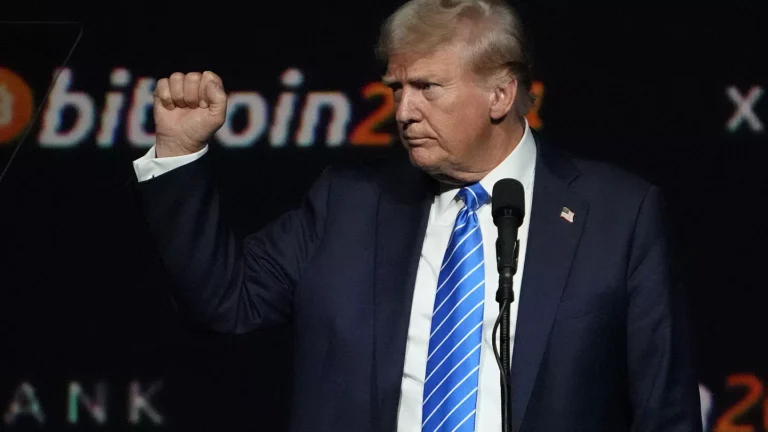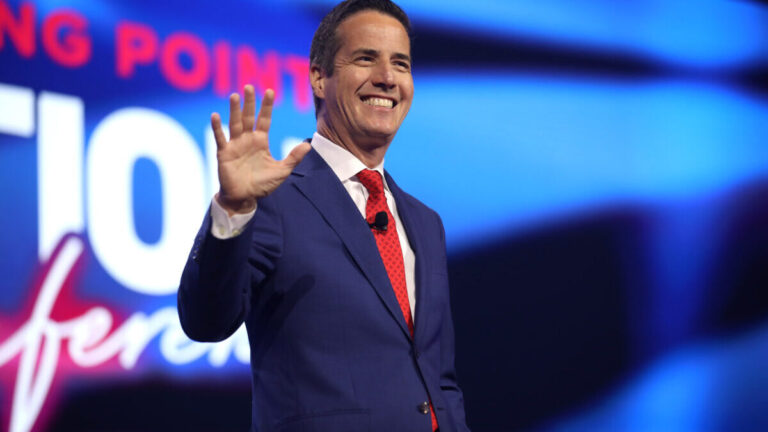The 2024 US elections are more than just about who will occupy the White House. The Senate races are also critical for shaping the future of cryptocurrency in the country, as several key races could influence the direction of crypto regulations. This year, Ohio, Montana, Pennsylvania, Wisconsin, and Massachusetts are the focal points for crypto supporters, as these races have candidates with different views on how the government should handle the growing crypto industry. Let’s break down why these elections matter to crypto and why understanding them can help you stay ahead of the curve in this fast-evolving field.
Key Senate Races to Watch
- Ohio: Sherrod Brown vs. Bernie Moreno
- Why it matters: Sherrod Brown is the incumbent Democratic senator and the chair of the Senate Banking Committee, a powerful position that helps write rules for financial industries, including crypto. Brown has been a strong opponent of crypto, calling it problematic for the economy. His challenger, Bernie Moreno, is a pro-crypto Republican who wants to make Ohio a hub for blockchain and crypto firms. He’s pushing for “regulatory certainty” for the crypto industry, though he doesn’t mention crypto explicitly on his campaign site.
- Key Takeaway: This race is crucial because if Moreno wins, it could mean more friendly policies toward crypto, leading to clearer regulations and a more stable market environment. As of now, the race is neck-and-neck, making it a critical one to watch.
- Massachusetts: Elizabeth Warren vs. John Deaton
- Why it matters: Senator Elizabeth Warren is one of the most vocal critics of crypto. She has argued that crypto is used for money laundering and harms the economy. Her challenger, John Deaton, is a well-known crypto lawyer who supports the rights of XRP tokenholders in their legal battle with the SEC. Deaton has received substantial funding from the crypto industry, including support from Ripple and the Winklevoss twins (co-founders of Gemini).
- Key Takeaway: This race is pivotal because Warren’s reelection would mean continued pressure on crypto from Washington. While Deaton had strong support, the polls suggest that Warren will likely hold onto her seat, which could make it harder for the industry to push for favorable legislation in the Senate.
- Montana: Jon Tester vs. Tim Sheehy
- Why it matters: Jon Tester, the incumbent, has expressed skepticism about crypto, calling it “bullshit” and unnecessary. On the other hand, Tim Sheehy, his GOP challenger, is a strong advocate for crypto, calling it “the future of finance.” Sheehy also opposes the creation of a Central Bank Digital Currency (CBDC), which crypto supporters fear could undermine decentralized finance.
- Key Takeaway: Sheehy’s pro-crypto stance makes this race important for anyone who wants to see less government control over digital currencies. With Sheehy currently leading by 11 percentage points, it looks like he could take Montana’s Senate seat and bring a more crypto-friendly perspective to Washington.
- Pennsylvania: Bob Casey Jr. vs. Dave McCormick
- Why it matters: Bob Casey Jr., the incumbent Democrat, has been somewhat neutral on crypto. While he has voted against some anti-crypto measures, he also supported a bill that the industry views as a setback for crypto development. His opponent, Dave McCormick, a Republican, has openly advocated for the US to lead on crypto innovation and has received an endorsement from Coinbase CEO Brian Armstrong.
- Key Takeaway: With a tight race and both candidates having different stances on crypto, this Senate seat could be crucial for crypto’s future in Pennsylvania and across the country. McCormick’s support from the crypto industry could signal more positive legislation if he wins.
- Wisconsin: Tammy Baldwin vs. Eric Hovde
- Why it matters: Tammy Baldwin, the incumbent Democrat, has been critical of crypto, while her challenger, Eric Hovde, has expressed support for decentralized finance (DeFi) and sees Bitcoin as a valuable asset. However, Hovde has been cautious about certain parts of the crypto market, especially “junk coins” with no real value.
- Key Takeaway: This race is another tight one, but Hovde’s more balanced view on crypto could make him a better ally for the industry compared to Baldwin. With both candidates neck-and-neck, this race could shift the balance in favor of pro-crypto legislation.
Why This Matters for You
As a 20-year-old interested in cryptocurrency and technology, understanding the outcome of these Senate races is crucial for several reasons:
- Regulations Impact Everything: The way lawmakers handle crypto regulations will shape the market for years. If pro-crypto candidates win, they may push for clearer rules that protect investors and businesses, making it easier for crypto to thrive.
- Opportunity for Growth: As the crypto market matures, having lawmakers who understand and support the industry could unlock massive growth potential. This includes more crypto-friendly policies that could lead to innovation, new projects, and job opportunities in the tech space.
- Global Influence: The US sets the tone for global crypto regulations. The decisions made in the Senate could influence how other countries handle digital assets, affecting the broader economy and investment landscape.
- Building Knowledge: By understanding these elections and the candidates’ positions, you’re preparing yourself for a future in which crypto could be a significant part of the global economy. This knowledge could help you make better investment decisions or even pursue a career in the blockchain and crypto sectors.
In summary, while the presidential race is grabbing headlines, these Senate races could be just as important for the future of crypto in the US. By paying attention to who wins and what their stances are on digital currencies, you’re positioning yourself to stay informed and ahead of the curve in this rapidly evolving space.



